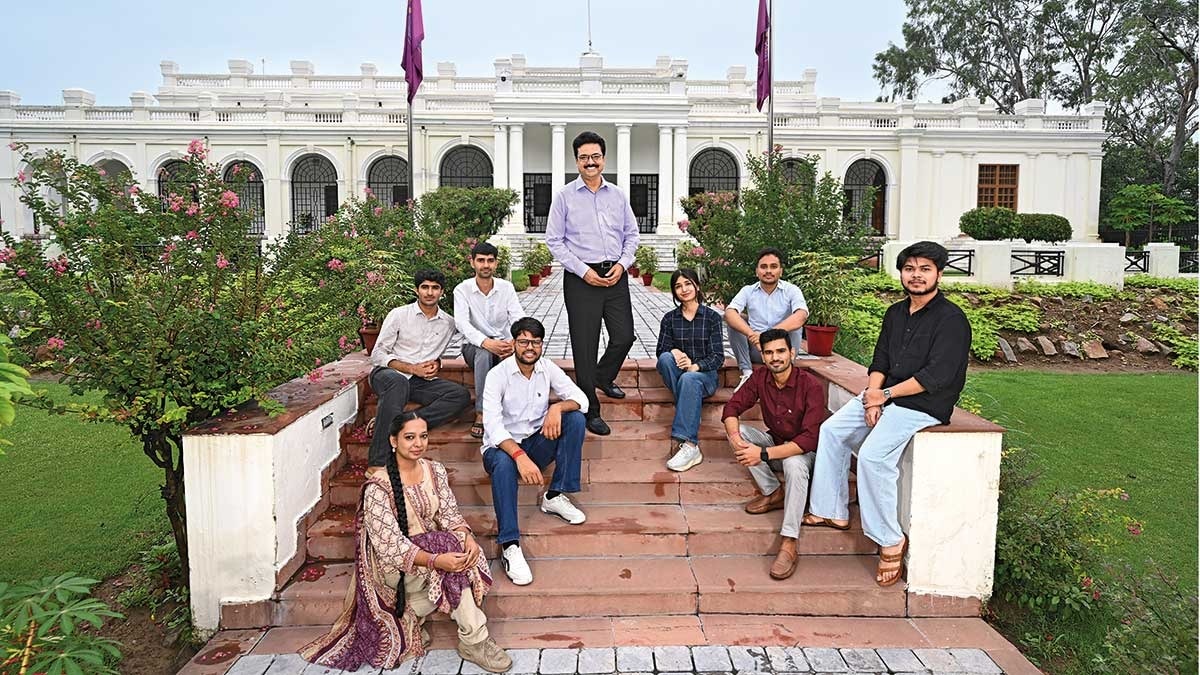
A Legacy of Excellence and Transformation
The University of Delhi, established in May 1922 through an Act of the central legislature, has grown into one of India's most prestigious institutions of higher learning. Initially, it had two faculties—Arts and Science—and offered a limited range of undergraduate and postgraduate programs through three founding colleges: St. Stephen's, Hindu College, and Ramjas College. The university started with eight departments, including Sanskrit, History, Economics, English, Arabic, Persian, Physics, and Chemistry. Its library was founded with a donation of 1,380 books, reflecting the early commitment to academic excellence.
By 2025, the university has expanded significantly. It now offers 90 undergraduate, 135 postgraduate, and 71 PhD programs, along with 37 certificate and 114 diploma courses. Spanning 407 acres, it encompasses 91 colleges, 16 faculties, 86 academic departments, and 23 centers, schools, and institutes. With over 620,000 students enrolled, it stands as one of India’s largest and most diverse public universities.
More than 11,000 students are currently enrolled in postgraduate programs, highlighting the university's dedication to advanced academic training, research, and interdisciplinary scholarship. Out of 109 academic units, 87 focus on postgraduate and higher studies. Aligning with the National Education Policy 2020, the university introduced the Undergraduate Curriculum Framework (UGCF) 2022 and the Postgraduate Curriculum Framework (PGCF) 2025, emphasizing flexibility, interdisciplinarity, and research orientation.
The infrastructure blends colonial-era buildings with modern facilities, including 34 libraries with over 1.7 million volumes and access to 30,000+ e-journals. The campus features 20 student hostels, 568 classrooms equipped with audio-visual tools and WiFi, and 238 specialized laboratories supporting PG and doctoral programs across various disciplines.
In 2024, the university recorded an impressive research output, with over 5,200 publications indexed in Scopus. Of these, 10.4% were in the top 10%, and 1.2% were among the top 1% most cited globally. The university also filed four patents and achieved 1,725 campus placements, with leading recruiters like Accenture, Deloitte, EY, McKinsey & Company, ZS Associates, ICICI Bank, KPMG, Amazon, Adobe, ITC, Mahindra, Morgan Stanley, and TCS. The highest package offered to a postgraduate student exceeded Rs 1 crore per annum.
However, this figure only captures part of the placement landscape. Many students pursue non-traditional careers, such as independent legal practice, judicial apprenticeships, or roles in translation, creative writing, journalism, and freelance performance. Over 50% of outgoing postgraduate students come from Science, Commerce, Economics, and Social Sciences, often entering start-ups, consultancies, NGOs, and digital media. These fields emphasize flexibility, innovation, and personal growth, reinforcing the university's role as a powerhouse of higher education.
Transforming the Future
Over the past two years, the University of Delhi has undergone significant transformation, driven by a vision to elevate its status as a premier institution. One of the key achievements has been the recruitment of nearly 5,000 faculty members, enhancing academic quality and research excellence. The ongoing recruitment of non-teaching staff ensures better administrative support and smoother operations across the university's extensive network of 91 colleges and 500 academic programs.
Infrastructure upgrades have been a priority, with a Rs 2,000 crore investment aimed at renovating existing facilities and constructing new buildings with modern amenities such as smart classrooms, WiFi connectivity, CCTV surveillance, and sustainable solar power solutions. The new East and West campuses, located near Karkardooma Court and Sector 21 metro station in Dwarka, are set to become operational by September 2026, marking the university's expansion beyond its traditional North and South campuses.
Academic innovation is also a focus. The university has launched engineering programs, expanding its reach into technology education after decades of reliance on affiliated institutes. New MA programs in Korean and Chinese Studies reflect a global and interdisciplinary outlook. The implementation of the National Education Policy (NEP) 2020 introduced four-year undergraduate programs, enhancing academic flexibility and depth.
Research output has flourished, with over 5,200 publications in 2024 and the highest H-Index among Indian universities. The 'Institution of Eminence' status and government funding have accelerated investments in digital infrastructure and central research facilities. Entrepreneurship is being nurtured through a dedicated startup incubator offering seed funding, mentorship, and internships, while the Vice Chancellor Internship scheme connects students with industry and administrative roles.
Admission reforms through a centralized entrance test ensure a level playing field for applicants across diverse educational boards, fostering meritocracy and diversity with a balanced gender ratio of 53% female students. As the University of Delhi celebrates more than a century of excellence, these comprehensive reforms and investments signal a dynamic new chapter.
A Launchpad for Dreams
After completing my BSc (Hons) in Chemistry from Hindu College, I dedicated myself to preparing for the UPSC Civil Services Exam, reaching the interview stage in February this year. However, over time, I realized that while public policy fascinated me, I also wanted to explore its application from a corporate perspective. That’s when the Faculty of Management Studies (FMS) became my natural next step.
FMS offered everything I needed: academic excellence, flexibility, an unbeatable alumni network, and the convenience of being in Delhi, which allowed me to manage my UPSC attempt alongside my course studies. Academically, FMS keeps us on our toes. We tackle diverse courses—finance, IT, marketing, strategy—before specializing in the second year. I chose marketing and strategy, and I’m also diving deep into government consulting. We’re currently required to complete a dissertation.
What I love most about the FMS and DU ecosystem is its balance—it’s rigorous but not suffocating. There’s space for growth beyond textbooks through case competitions, guest lectures, and cultural clubs. Outside the classroom, I’m an executive member of the Public Policy Club, the first of its kind at FMS. We host guest lectures and policy conferences, and it’s rewarding to create platforms where business students explore how policy intersects with the private sector.
As I look forward to my final semester, placements, and beyond, I also reflect on my time at FMS. It has been more than just pursuing a degree—it’s been a pivot, a platform, and most of all, a launchpad.